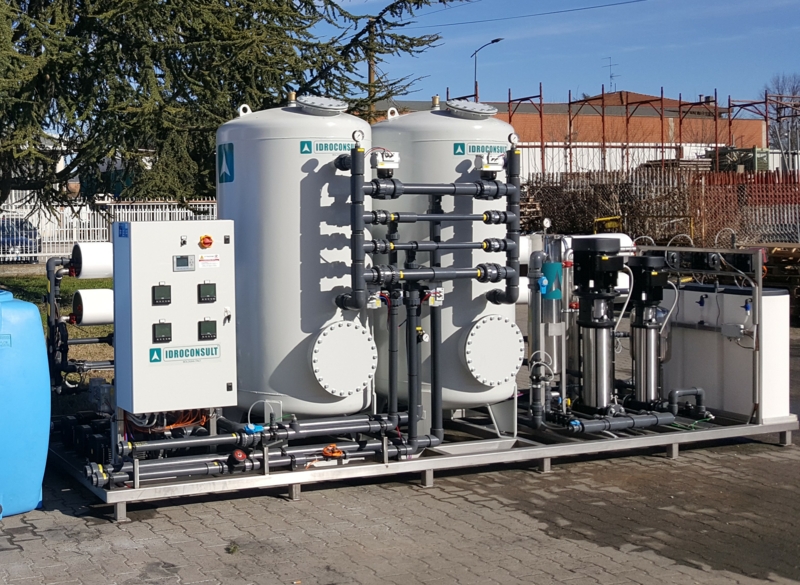.png)
High-quality water is essential in power plants to ensure that equipment operates efficiently and effectively and to minimise the power plant's environmental impact. By using high quality water and maintaining it properly, power plants can reduce costs, increase efficiency and meet regulatory requirements.
The types of equipment required to ensure proper operation of power plants are generally all related to the reverse osmosis process, whether single-pass or double-pass.
Osmosis water is a type of purified water that has undergone a reverse osmosis process to remove impurities, mineral salts and contaminants. This type of water is extremely suitable for a wide range of industrial applications, including use in power plants.
Cooling:
Power plants use water to cool equipment and turbines. If the water is not of high quality, it can cause scaling and corrosion, which can damage the equipment and shorten its life. In addition, poor quality water can reduce the efficiency of the cooling process, leading to increased energy consumption and costs.
Steam generation:
High-quality water is essential for steam generation in power plants. Impurities in the water can cause fouling and corrosion of boiler tubes, reducing their life and efficiency. This can also lead to safety problems such as tube failures and explosions. In addition, impurities in the water can affect steam quality, which can affect the efficiency of the turbine and other downstream equipment.
Emission control:
Power plants use water for emission control, such as scrubbing systems that remove pollutants from flue gases. The water used for this purpose must be of high quality to avoid corrosion and fouling of equipment, which can compromise the efficiency of the emission control system.
Turbine maintenance:
There are several benefits to using osmosis water for turbine cleaning in power plants, ranging from improving the efficiency and performance of the turbines themselves, to reducing maintenance costs and increasing their lifespan. First of all, osmotic water is free of mineral salts and sediments that could accumulate on the internal components of turbines, such as fan blades or water pipes. These deposits can reduce the efficiency of the system and cause problems such as decreased energy production and increased fuel consumption. By using osmosis water to clean turbines, these deposits can be avoided and optimal turbine performance can be maintained over time.
In addition, osmotic water is also free of chemicals and pollutants that could damage turbine components or impair the quality of the cooling water.
In view of the extreme criticality of turbines as key components of a power plant, the type of water treatment involves, as a minimum, a double-pass reverse osmosis system, with possible refinement by EDI or mixed-bed DEMI column.
The best solution to your problem
Contact us for a personalized offer
 IT
IT


